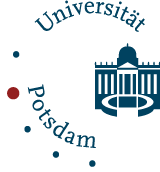The Social Function of Corruption and Embezzlement in Late Republican Politics
Provincial corruption and embezzlement have been traditionally understood within a legal and political framework, while their social function and discursive construction within Roman politics has been overlooked. This project aims to investigate the ties of society and obligation forged by participating in acts of corruption together, and how these ties were presented in discourse both by political supporters and opponents. Particularly interesting is the case of young magistrates committing corruption together with senior peers, e.g. quaestors under provincial governors: these episodes may be understood as creating a sense of obligation and kinship and a complicity in crime, while at other times the hierarchical difference might be used to excuse the younger magistrate; an eventual resistance by the junior magistrate can create a conflict between the two and different ways in which this conflict can be discursively represented. This issue is deeply connected and crucial to an understanding of the complex relationship between gifts and bribes in the context of provincial administration and will be the object of an article to be submitted to an international peer reviewed journal. From this first research question ensues a further research angle: applying the category of “twisted transfer” to information exchange, to its presentation in discourse as an immaterial commodity and to its role in creating images of complicity with or resistance against other magistrates and senior colleagues. This investigation will crystallise into a chapter for the project’s collective volume.
